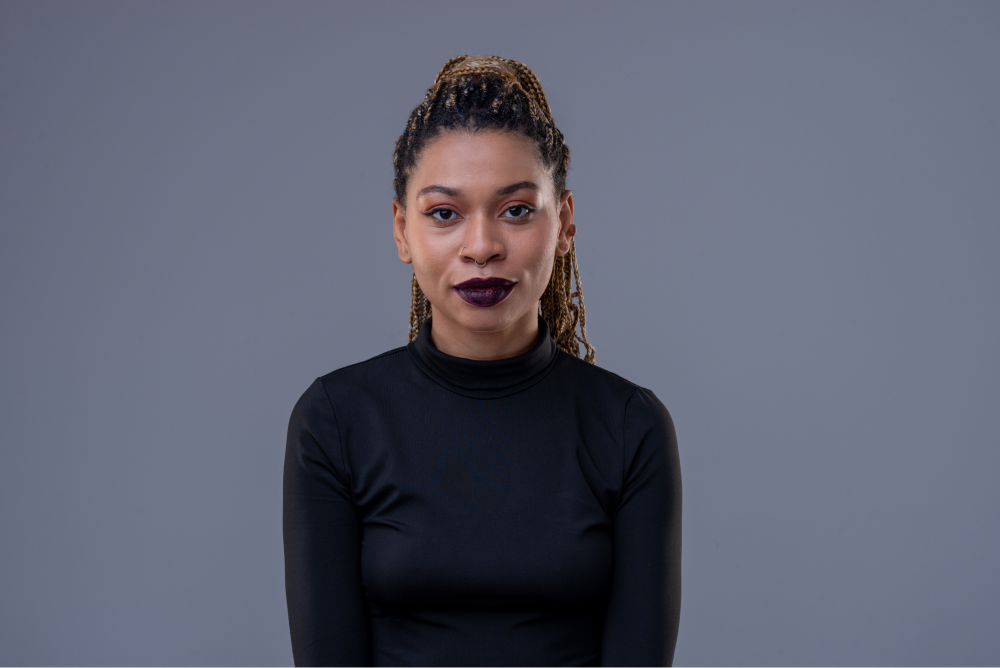Meet Susan Liao 🍜 🌈 🐶
Susan Liao is a global facili-coach and social impact strategist, the Founder of Startups for All and Leaders Like Us, and the Founding Co-Creator of the Reimagining Unconference.

As a champion of liberatory leadership, Susan Liao is working to advance full representation of our most marginalized populations, including women of color and queer/trans BIPOC, as startup leaders and CEOs. She is an experienced equity-centered advisor, coach, and facilitator who works at the intersection of digital innovation, social entrepreneurship, and nonprofit impact strategy.
Susan's practice, Leaders Like Us LLC, and venture, Startups for All, help purpose-driven founders, knowledge workers, and social entrepreneurs from underrepresented populations clarify their North Star purpose and achieve meaningful social change. Susan holds a BSE in Computer Science from Princeton University and resides in Portland, Oregon. 🇺🇸
What's your biggest question at the moment?
Who are you building wealth for?
Who inspires you, and why?
Currently, the names most active in my mind (and in conversation) are adrienne maree brown, Audre Lorde, and Ruha Benjamin. Each has shared words about centering and honoring the small…the small steps that lead to meaningful, BIG change.
From Audre Lorde’s “Learning from the 60s” address, given in 1982 celebrating Malcolm X weekend at Harvard University,
“Revolution is not a one-time event. It is becoming always vigilant for the smallest opportunity to make a genuine change in established, outgrown responses.”
From adrienne maree brown, manifesting fractals in emergent strategy as
“Small is good, small is all. (The large is a reflection of the small.)”
From Ruha Benjamin, a statement she shared at the 2022 launch event for the Social Science Research Council's Just Tech platform,
“What does it actually look like to actually respect things at the small scale? And to work on things at a small scale before we have to do prime time…?”
In the context of my work in tech, startups, and executive leadership, I hold these words so close and often to my work to counteract traditional norms and decades of conditioning about moving fast, scaling fast, increasing velocity, achieving “hockey stick growth,” and continuous improvement... Especially that last one. Ten years ago, if you asked me why I make for an effective leader, an effective VP/executive, I would’ve said (and have said) because I strive for continual improvement!
Today, I’m older and wiser!
I cherish rest and acknowledge the ebb and flow of life and work. I talk more about evolving rather than improving, and care so much more for respecting the small rather than following stories about rapid growth and unicorns.
Not to say that unicorns are bad or unwanted. But I want to draw back the curtains even further and show that there are other pathways to earning and building generational wealth, other possibilities for futures that bring joy and prosperity to the communities you care about and that we care about.
Your mission centers around making leadership and foundership accessible to all, with a focus on marginalized populations. Can you share a specific example where your work has contributed to advancing full representation in these areas?
When I founded Startups for All, I made a key decision to make its programs open to all and to center the experiences of those from historically marginalized communities. It’s an AND situation, not an OR. So, we have an enrollment process rather than an application or a vetting process. People self-select out rather than selecting in. And still, we’re able to hold space for groups where the majority of participants are women, people of color, and those of intersectional identities.
We also don’t take or require attendance. (Yikes, right??) We only ask for 3 Things:
- A strong, pressing desire to make positive social change;
- A commitment to actively contribute to a shared community agreement and engage in monthly reflections, and
- A commitment to nurturing a welcoming, safe, and positive environment for all.
Over 3 years and six cohort programs, we’ve experimented with and adjusted various aspects of the program - changing curriculum, changing schedules, changing coaches, etc. But we have never wavered on being open to all and those 3 Things.
How do you see the role of social impact in shaping the culture and success of startups, especially those led by underrepresented founders?
In the context of social impact and startups, some North Star questions I like to ask founders are, “What does impact look like to you?” and “Who will benefit the most as a result of using your service or product?” and “Who are you building wealth for?” Especially that last question…I believe in equity-centered practices, like reparations, in which historical harms and privileges are acknowledged and addressed through policy and business/funding strategy.
I’m not a finance person nor an expert on funding strategies, but I do believe that if we want to see more folks like myself or those of intersectional identities in seats of power and leadership, we have to make it easy to fund small-scale experiments by founders from historically marginalized groups and make those learnings accessible to all.
And by fund, I mean non-dilutive, no-strings-attached cash. The value is in embracing abundance and opening access to the learning process, in the deliberate practice of developing rituals and evolving one’s founder journey in a way that honors harmony in life and work.
What advice would you give to someone who wants to follow a similar path or do work similar to yours?
In the context of how I strive to model new ways of working and champion liberatory leadership, I firmly believe each person on this planet has a unique way of moving through the world, a unique way of making sense of what’s happening around them and how they interpret these inputs and make decisions.
So if you’re someone who aims to embrace difference and people’s unique lived experiences, then I encourage you to find safe-enough spaces to practice languaging out loud what you care about, to dialogue in a no-judgment space where each person, including YOU, has equitable (not equal, but equitable) opportunity to be heard and seen.
I believe there’s power in naming things, in creating or building your vocabulary for what you care about, a process that involves being vulnerable and digging deep into making sense of what motivates you and what gets you to move.
Often, this sensemaking process becomes much more revealing when you have a conversation partner, a facilitator of sorts, who, without bias, helps to tease out words you never thought you’d string together. So, in short - I advise you to find ways to take up air time and to hear yourself speaking out loud. You deserve it. You’re worth it.
What is the most important lesson you've learned throughout your journey so far?
Space, pace, and grace. (And prepare to be surprised.)
What are some projects or initiatives in your field or related fields that you find particularly exciting?
I’m very interested in projects and practices that embrace the values of abundance, liberation, and joy. And in spotlighting voices and stories of small shifts that typically wouldn't be seen in mainstream media. (Like Sparkable!)
For example, rather than the Top X list of those under X years of age, I would love to know about that neighbor who built a simple bench out of two logs engraved with the words “Have a seat!” and set it out along the sidewalk. I would also love to hear about how ecosystems of connected communities distribute power and self-evolve over time.
I’m also very interested in the process of timed or time-blocking activities—whether in the context of facilitative formats such as Liberating Structures, timed accountability sessions, or even dog training. I suppose this is related to one of my emerging North Stars about focusing on the journey, not the outcome. But also, in my own practice as a facilitator and lifelong multi-tasker, the timer has become my best friend in getting in the flow and getting things done.
Can you share a podcast episode, article, or video that you've enjoyed recently and would recommend to others?
🙌 "I love how each episode begins by describing the positionality of the speakers and keywords for the episode." — Susan
What gives you hope in the face of the complex challenges we face globally?
The power of joy and thriving, not simply sustaining.
What's a small everyday joy or habit that makes you feel good?
Watching my pup curled up at the end of the sofa, with her head half propped on the arm, snoring.
Do you have a favorite quote or mantra that you find particularly meaningful or guiding in your life?
Your beliefs become your thoughts,
Your thoughts become your words,
Your words become your actions,
Your actions become your habits,
Your habits become your values,
Your values become your destiny.
— Mahatma Gandhi
Where can we connect with you?
Work: Linkedin ↗ (me) | Startups for All Website ↗, Startups for All Instagram ↗ (founders) | Leaders Like Us ↗ (liberatory leadership, future of work)
Explorations: Instagram.com/hellohiace ↗ (vanlife & puppyhood) | Instagram.com/ramengiving ↗ (giving back through the love of ramen)
See more featured community members
Meet other fascinating folks in responsible tech, digital rights, and peacebuilding, and learn from their valuable insights:







